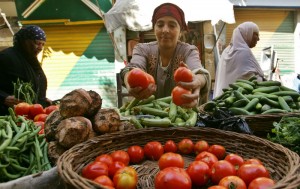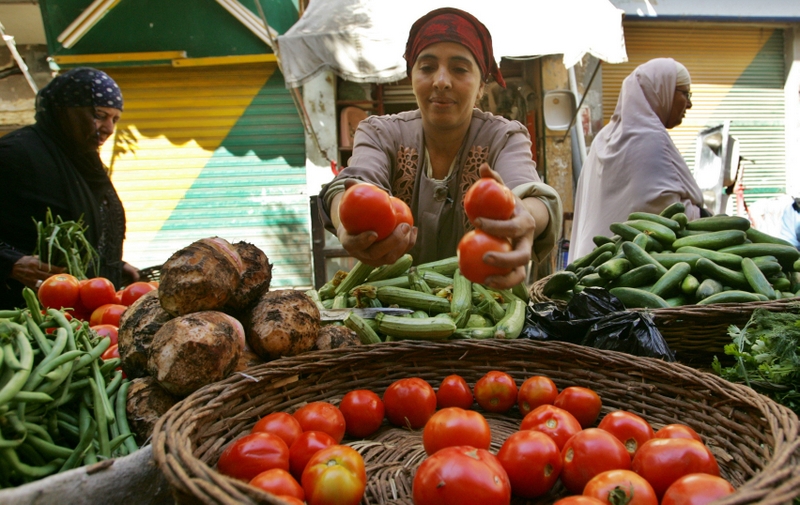
(AFP Photo)
An increase in petroleum product prices will negatively affect agriculture and food products in the near future, said Gamal Siam, professor of agricultural economy at Cairo University, as petroleum is used in food production as well as the transportation process.
He expects food commodity prices to increase by more than 20%, a burden that will be borne by farmers who already suffer from several economic strains, the most important of which is their low income compared to that of merchants and manufacturers.
The cabinet raised the price of 95-octane petrol to EGP 6.25 from EGP 0.95 per litre, 92-octane petrol to EGP 2.60 per litre, and diesel and kerosene to EGP 1.80 per litre.
According to a study issued by the Federation of Egyptian Industries, the agricultural sector is a major consumer of diesel, accounting for 16% of the total EGP 12.4m tons of diesel consumed annually. Transportation consumes 35% as the largest consumer of diesel, followed by the tourism sector.
The petroleum product price increase comes as a result of the finance ministry’s policy reducing allocations for petroleum subsidies by approximately EGP 41bn, bringing the total allocations for subsidies to EGP 100.3bn.
Egypt’s agricultural sector employs approximately six million workers of the total 26 million workers in Egypt according to the Central Agency for Public Mobilization and Statistics.
Abdul Salam Gomaa, head of the Farmers’ Syndicate, believes that increasing petroleum prices is not a move against farmers and is actually in their favour, as “the selling price for products will increase.”
According to the Gomaa, increasing the price will reduce the scarcity of diesel, especially throughout the wheat harvest season which is witnessing diesel crises year on year.
Food product prices on the Obour market were unstable following the price hikes according to Gamal Mishmish, a fruit merchant. He added that prices increased by approximately 20% on the day of the government’s decision to increase petroleum product prices.
The Obour market is one of Egypt’s largest for fruits and vegetables, as it supplies the rest of Egypt’s produce markets.
According to Mishmish, the increase includes an increase in transportation costs but not in production costs. The latter is expected to increase prices by more than 50% through the use of irrigation and agricultural machinery, Mishmish said.



